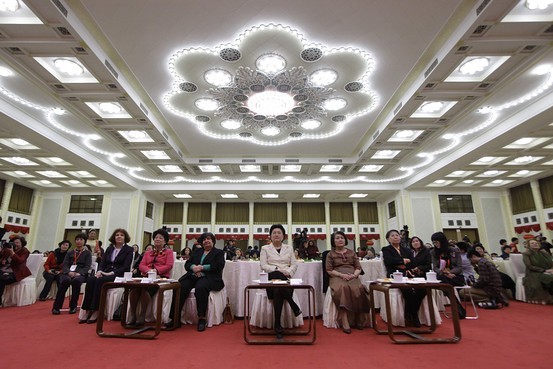Conducted jointly by "World Executive" magazine and Zhengdao Leadership Center, a survey of 1,400 Chinese citizens shows that female company executives scored more highly in the areas of learning, teaching and connecting with others.
Contrarily, development was the sole area in which males outperformed the opposite sex.
The survey results were publicized early last week and represent the responses of both online participants and those who read the hard-copy version of the "World Executive" publication. In terms of the survey time frame, the information was collected between October and November of last year.
The chief consultant of the Zhengdao Leadership Center, Liu Lan, found through an analysis of the data that managers who are men typically take charge by instructing team members, which stands in contrast to the preferred female method, whereby persuasion and personal connection are used to lead people. According to the consultant, the leadership style of women executives is the key to the superior edge they possess.
According to the survey results, Chinese managers identified potential, passion, teamwork and accountability as the four qualities that are of greatest significance to them.
The responses of the participants show that female managers are more concerned with accountability than passion, which is different from the priorities of men, who value the latter more highly.
On an international scale, China consists of a high degree of gender equality at the executive level. In March 2014, 38 percent of the nation's senior management roles were held by women.
Furthermore, last Tuesday's results from the the two Beijing-based bodies were released in the week prior to the International Labour Organisation (ILO)'s "Women in Business and Management: Gaining Momentum" report.
The ILO reported this week that, in a global context, women continue to struggle at management levels for numerous reasons that include gender stereotyping and persistent types of corporate cultures.
The international body concludes that worldwide growth and competitiveness will be hampered without executive-level gender parity, with 200 years given as a potential time frame.






















